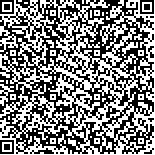| 摘要: |
| [摘要] 目的 观察进展期胃癌根治术(毕Ⅱ式)对幽门螺旋杆菌(Hp)感染的影响及药物干预的临床效果。方法 103例可行根治性远端胃癌切除术的胃癌患者,采用胃镜活组织病理、13C尿素呼气试验(UBT)检测Hp感染,在进行胃癌根治手术(毕Ⅱ式)术后继续监测Hp感染状态,同时胃镜观察吻合口、残余胃组织,诊断是否存在吻合口炎、吻合口糜烂、吻合口溃疡、慢性胃炎及糜烂、胃黏膜肠化等病理改变,随访患者消化道症状。对术后4周仍存在Hp感染者60例随机分为两组,对照组30例给予临床观察,实验组30例给予根除Hp治疗;术后随访观察3年,术后每6个月随访胃镜、CT,记录消化道症状和胃镜结果,检查肿瘤是否复发转移。结果 该组胃癌患者术前Hp感染率为73.8%(76/103),术后4周残胃Hp感染率58.3%(60/103),术后6个月Hp持续感染率为41.7%(43/103),术后6个月内残胃吻合口溃疡发生率为11.7%(12/103),吻合口炎发生率为80.0%(82/103)。其中,实验组(抗Hp治疗组)Hp根除率高于对照组(P<0.05);实验组残胃炎发生率低于对照组(P<0.05),实验组残胃癌复发率、吻合口溃疡发生率与对照组相比差异无统计学意义(P>0.05);胃癌术后Hp持续阳性患者残胃癌发生率与Hp阴性患者相比有增加,但差异无统计学意义(P>0.05)。结论 进展期胃癌根治术后残胃Hp感染率下降,对于术后残胃Hp感染持续阳性者,抗Hp治疗可改善其症状,是否降低残胃复发率及残胃癌发生率,仍需扩大病例进行观察总结。 |
| 关键词: 幽门螺杆菌 胃癌 胃癌根治术(毕Ⅱ式) |
| DOI:10.3969/j.issn.1674-3806.2016.10.01 |
| 分类号:R 735.2 |
| 基金项目:广西医疗卫生重点科研课题项目(编号:重200960) |
|
| The changes of helicobacter pylori infection and the curative effect of anti-Hp after advanced gastric cancer radical surgery(Billroth Ⅱ) |
|
ZHONG Xiao-gang, WANG Xiao-tong, YIN Wu, et al.
|
|
Department of Gastrointestinal Surgery, the People′s Hospital of Guangxi Zhuang Autonomous Region, Nanning 530021, China
|
| Abstract: |
| [Abstract] Objective To investigate the outcome of Helicobacter pylori(Hp) infection and the eradication of Hp after advanced gastric cancer surgery(Billroth Ⅱ).Methods One hundred and three patients were performed radical distal gastrectomy whose Hp infections were pathologically conformed by endoscopic biopsy. 13C urea breath test(UBT) was used to diagnose Hp infection. Gastroscopy was used to observe anastomotic and residual stomach tissues. The existences of anastomotic inflammation, erosion and ulcer, chronic gastritis and other pathological changes including erosion and gastric intestinal metaplasia were observed. Sixty samples with Hp infection 4 weeks after the surgery were divided into the control group(n=30) and the experimental group (n=30). Both of the two groups were given strict clinical observation and the experimental group received the additional medical eradication of Hp. Gastroscopy and CT were conducted every 6 months in all cases during a follow-up of 3 years. Metastasis and recurrence of tumors were also checked.Results Of the 103 cases with radical distal gastrectomy, 76 cases suffered from Hp infection(73.3%) before the operation, 60 cases suffered from Hp infection(58.3%) four weeks after the operation, 43 cases suffered from Hp infection(41.7%) six months after the operation; 12 cases had anastomotic ulcer(11.6%) and 82 cases had anastomotic inflammation(80.0%) six months after the operation. The eradicate rate of Hp of the experimental group was significant higher than that of the control group(P<0.05); The residual gastritis of the experimental group was significantly lower than that of the control group(P<0.05), and anastomotic ulcers of the experimental group were lower than those of the control group, but without a significant difference(P>0.05). There was no significant difference in the cancer recurrence rate of residual stomach between the experimental group and the control group(P>0.05). There was no significant difference in the incidence rate of residual stomach cancer between Hp persistent positive and negative(P>0.05).Conclusion Hp infection rate of residual stomach is decreased after advanced gastric cancer radical surgery. Anti-Hp therapy can improve the clinical manifestations in Hp positive patients after advanced gastric cancer radical surgery. |
| Key words: Helicobacter pylori Gastric cancer Gastric cancer radical surgery(Billroth Ⅱ) |

